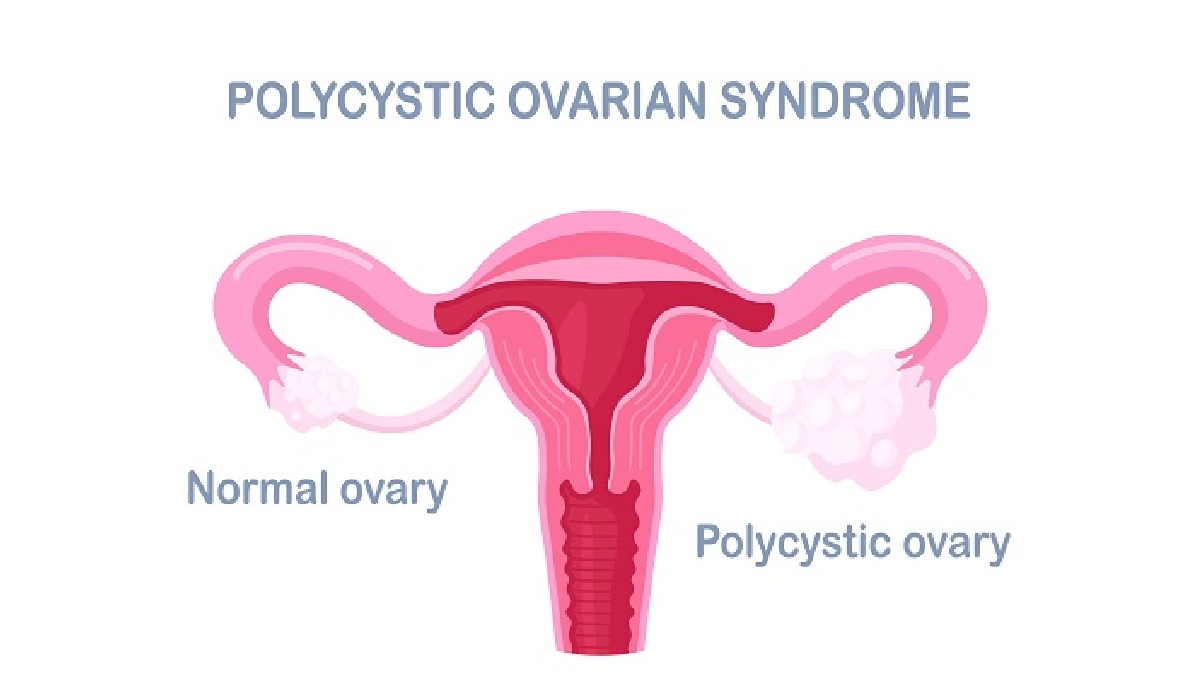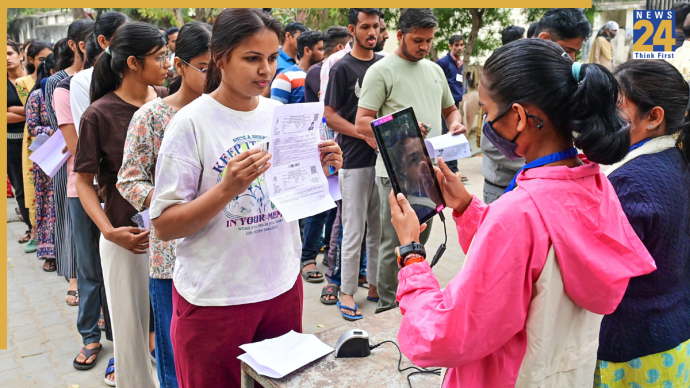New Delhi: According to a survey conducted at a large scale in the year 2020, around 16 per cent of women ranging between the age of 20 and 29, suffer from Polycystic Ovarian Disease (PCOD).
Polycystic Ovarian Disease (PCOD) is an illness which is caused by an imbalance of androgens- the hormones which provide growth and reproduction in both men and women. The main symptoms to take note of in this illness are cysts present in the ovaries, irregular menstrual periods, and excess hair on the face and body.
The name polycystic ovary disease details the numerous small cysts (fluid-filled sacs), which get deposited in the ovaries.
The illness takes place in a woman’s body when her body is unable to produce enough of the hormones necessary to ovulate. In turn, if the process of ovulation does not take place, the ovaries begin to form small cysts. Due to these cysts, the body goes through an imbalance of androgen hormones; causing problems with women’s menstrual cycle.
Reasons as to why PCOD happens?
There is no specific reason to pinpoint what causes PCOD. Many women with PCOD have high insulin resistance- larger levels of insulin worsen the already existing symptoms and increase testosterone-resulting in more acne, hair growth and irregular or absent periods.
Women with insulin resistance pose a higher risk of developing chronic ailments such as diabetes, obesity, heart disease and hypertension.
Diagnosis
Ultrasound
This test with the help of sound waves and a computer for creating images of blood vessels, tissues and organs, is used to look at the size of the ovaries along with the thickness of the lining of the uterus (endometrium).
Blood tests
Assists in examining high levels of androgens and other hormones.
Ways to manage PCOD
Who doesn’t wants to get rid of their illness forever? However, treating PCOD can be a bit tricky as it depends on the severity of symptoms and the overall health of a person. But it’s nothing that can’t be fixed.
In this article, we have jotted down some pointers for our readers to help them in taking control of their PCOD.
1. Taka a rich diet
Include all the necessary vitamins and minerals in your diet. Nutrient-rich diet will help in diminishing insulin levels more efficiently, lowering blood glucose levels, which may help a woman in conceiving.
2. Include whole foods
Foods, which are free from artificial sugars, hormones and preservatives. These dietary substances are more inclined to a natural and unprocessed state. For eg- fruits, vegetables, whole grains, and legumes.
3. Limiting or monitoring intake of simple carbs and excess protein intake
Eating more than the required protein encourages your body to produce insulin. In addition, taking unprocessed, high-carb foods can enhance insulin sensitivity.
4. Infusing other therapies
Activities like acupuncture, yoga and other complementary therapies help to eliminate stress levels that have piled on over time.
5. Sleep
Many of us take sleep for granted but is indeed a serious thing that one should be very considerate of. Taking proper sleep of about 6-7 hours will not only refine your body from all the toxins but also intensifies the mind’s functionality.
In India around 11.34 per cent of women suffers from PCOD on average. Although it is a life-long illness, still it can be treated efficiently. With proper management in diet and a better lifestyle, it is relieving to know that PCOD gets better with time.
(All the inputs taken above are from external sources and we do not claim any particular findings.)
(Written By- Mahek Nigam)













